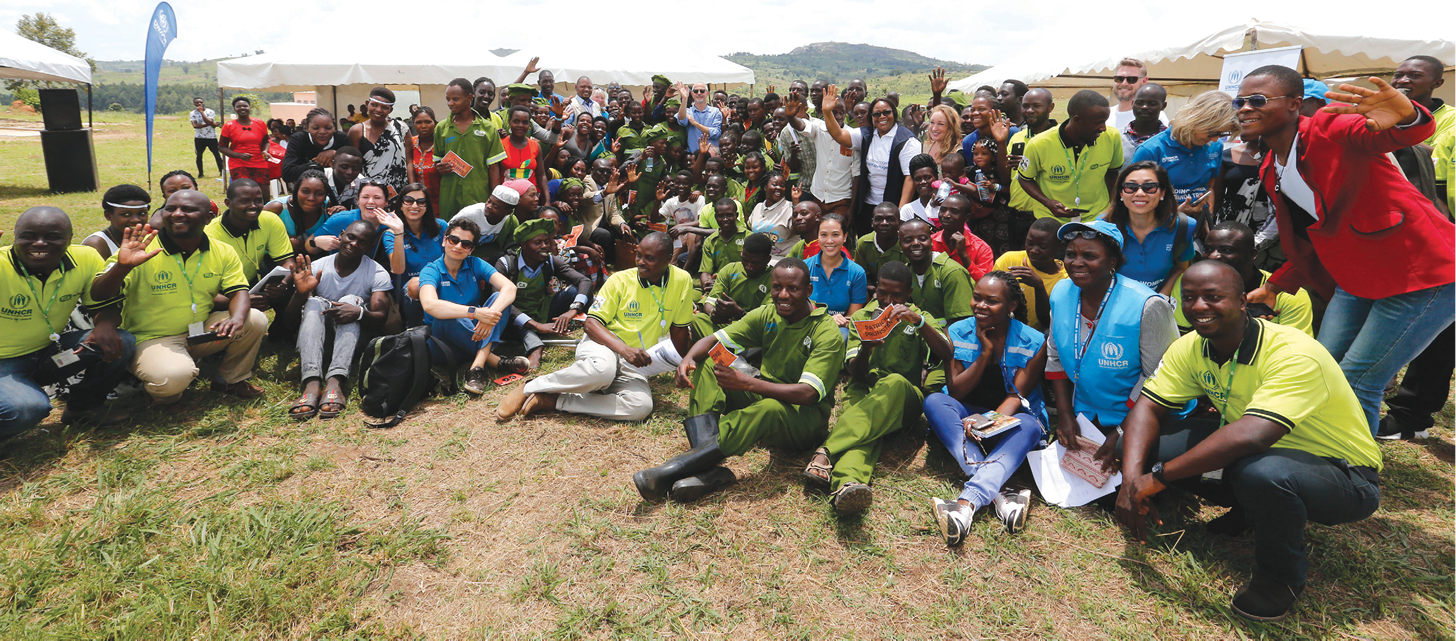Every three seconds, someone is forced to flee because of persecution, conflict, violence or human rights violations. They leave behind their homes, possessions, work or source of income – sometimes even family members. Many children lose parents along the way, having to fend for themselves in dangerous and traumatic circumstances.
“When we first founded Australia for UNHCR in 2000, there were 20 million people displaced worldwide and just one major crisis in a given year,” said Naomi Steer, founding National Director of Australia for UNHCR, the private sector partner of the UN Refugee Agency.
“Now the latest figures show 79.5 million people forcibly displaced, with many crises compounding each year and especially in 2020 – with the coronavirus pandemic, renewed conflict in Syria, ongoing humanitarian disaster in Yemen, the explosion and subsequent shelter crisis in Beirut, and the increasing frequency of climate change emergencies.”
Steer has a longstanding relationship with the IEU and its members including speaking at the IEU’s annual women’s conference. A former student of Monte Sant Angelo College, she credits her old school for embedding the importance of social justice in her and leading her on her path to her current role.
“Refugees are some of the most vulnerable people in the world today – and I am very thankful that so many independent schools, teachers and students have been so active in advocating for refugees both in Australia and globally including attending our Annual World Refugee Day Breakfast.”
“And we know how much refugees value education – the one thing that can’t be taken away but sadly is also so often hard to access,” Steer said.
Hope for the future
In a world where displacement situations last an average of 20 years, UNHCR’s most recent education report, Coming Together For Refugee Education, shows 48 percent of school aged refugee children are out of school.
Some 85 percent of the world’s refugees are hosted in developing countries, where health, education and other infrastructure are already strained. As refugee numbers grow year on year, the burden for host countries becomes heavier as well.
“We need to work together around the globe if we’re to have a hope of resolving this,” Steer said.
“Refugees and the countries that host them need our support. Education is one of the most powerful tools there is to help refugees become self sufficient and give back to their communities.”
UNHCR’s education programs aim to ensure access to school programs within the first three months of displacement – a critical time to address not only learning needs but also to provide protection against social isolation, trauma and the negative aspects of long term displacement including violence, child labour and for recruitment into gangs.
Saving lives
In addition to providing longer term support such as health services, education and livelihoods, UNHCR is also a first responder dealing with multiple emergencies.
And as Australia warms up, the harsh winter months are well on their way for vulnerable families displaced across Egypt, Iraq, Jordan, Lebanon and Syria, with the extreme cold weather bringing a fresh set of challenges to an estimated 4 million people in need of urgent assistance in the region.
For some, this will be their first year in displacement. For others, their 10th.
The coronavirus pandemic will make this winter even more gruelling, with social distancing restrictions threatening income opportunities for refugees and pushing many households into deeper financial uncertainty and poverty.
“When someone is forced to flee at a moment’s notice, they’re rarely able to carry heavy winter gear with them, like thick clothing, blankets or heaters. For those who have been displaced multiple times in their search for safety, any savings have been long exhausted,” Steer said.
UNHCR is already on the ground working to prepare settlements and refugee families with:
- core relief items such as thermal blankets, clothing and shelter weather proofing kits
- seasonal cash assistance for heaters, fuel, food or medicine, and
- improvements to shelters and other settlement infrastructure to withstand the harsh winter conditions.
“Having visited refugee situations over many years, I have witnessed the lifesaving and transformative relief that UNHCR delivers,” Steer said.
“But we now face new and increased challenges in meeting the needs of refugees globally. We cannot do it alone and that’s why I am very grateful for the many Australian supporters, who over 20 years, have taken action to stand with refugees.”
Learn more about supporting refugee education at unrefugees.org.au/refugeeeducation. Donate now to help refugee families survive the freezing winter unrefugees.org.au/winterfund




































































































































